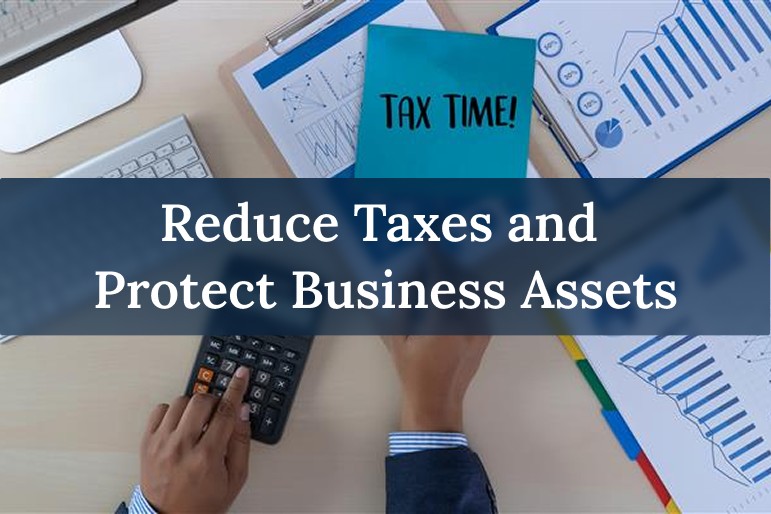
Running a business in Puerto Rico offers many opportunities, including access to unique tax incentives and a vibrant local economy. However, without a smart tax and asset protection plan, you could lose a significant portion of your profits to unnecessary taxes or unexpected liabilities. Understanding the rules around taxation in Puerto Rico is essential to avoiding financial pitfalls and making the most of local regulations.
With the right strategies, business owners can reduce their tax exposure while also protecting the assets they’ve worked hard to build. In this guide, you’ll learn how to legally reduce taxes, shield your wealth, and ensure the future stability of your enterprise—while staying compliant and financially secure.
Table of Contents
ToggleTop Tax Challenges for Business Owners
Puerto Rican business owners face a unique blend of local and federal tax concerns. These include:
- Dual Compliance: Business owners must often navigate both Puerto Rico and U.S. tax codes. This increases complexity and creates a higher chance of compliance issues.
- High Self-Employment Taxes: Without proper entity setup, you might pay more than necessary in payroll and self-employment taxes.
- Missed Deductions: Many owners fail to capture deductions for home offices, equipment depreciation, or benefits like health insurance.
- Underutilized Incentives: Puerto Rico offers generous tax incentives under Act 60, yet many small businesses never apply.
How Entity Structure Affects Taxes and Liability
Choosing the right business structure in Puerto Rico can save thousands in taxes and protect your personal assets.
- Sole Proprietorships offer simplicity but expose you to full personal liability and higher self-employment taxes.
- LLCs allow pass-through taxation and limited liability. You can elect to be taxed as an S-Corp to reduce employment taxes.
- Corporations (Inc.) provide separation between business and personal assets and offer more robust retirement plan options.
A proper structure also makes it easier to take advantage of Puerto Rico’s business tax incentives
Understanding Act 60: A Game Changer for Tax Savings
Act 60 (formerly Acts 20 and 22) provides tax incentives to qualifying residents and service-export businesses.
- Export Services: Service-based businesses operating in Puerto Rico and serving clients outside the island may be eligible for a reduced 4% corporate tax rate.
- Resident Investors: Individual residents who relocate can benefit from 0% capital gains on Puerto Rico-sourced income.
- Requirements: You must meet residency, income sourcing, and application requirements to qualify.
Puerto Rico has become a magnet for entrepreneurs thanks to Act 60, which offers legal pathways to significantly reduce tax obligations.
Most Effective Tax Deductions for Business Owners
Strategic use of deductions can dramatically reduce your taxable income:
- Office and Utilities: Deduct rent, internet, phone, and electricity used for your business.
- Depreciation: Apply MACRS or Section 179 to depreciate equipment, vehicles, or property.
- Health Insurance: Deduct health premiums paid for both yourself and your employees.
- Business Vehicles: Write off mileage or lease payments.
- Retirement Contributions: Employer contributions to employee or owner retirement plans are deductible.
For tailored deductions based on your business, speak with top tax reduction specialists in Puerto Rico.
How Retirement Plans Reduce Taxes & Build Wealth
Offering a retirement plan through your business allows you to reduce current taxable income while building long-term savings for you and your employees.
- SEP IRA: Great for solo business owners. Contribute up to 25% of income, tax-deferred.
- SIMPLE IRA: Ideal for small businesses with under 100 employees, providing straightforward setup and valuable tax advantages.
- Solo 401(k): Offers both employer and employee contributions, leading to higher savings limits.
These plans reduce taxable income and build a secure retirement, especially when combined with Puerto Rico’s unique tax rules.
Should You Use a Holding Company or Trust?
Asset protection is vital for business continuity. Two powerful tools include:
- Holding Companies: Separate high-risk operations from valuable assets like real estate, patents, or cash.
- Trusts: Shield personal and family assets from business liabilities. Useful for succession planning too.
By segregating assets, you prevent creditors or lawsuits from affecting your entire portfolio.
How Insurance Protects Business Value and Lowers Taxes
Insurance isn’t just about risk protection—it can also be a strategic tax tool:
- Whole Life Insurance: Builds cash value over time and can offer tax-deferred growth.
- Buy-Sell Agreements: Funded with life insurance, this ensures smooth ownership transitions.
- Key Person Insurance: Protects your business if a crucial employee or partner passes away.
Premiums for certain types of business insurance can also be tax-deductible.
What Role Does Real Estate Play in Asset and Tax Strategy?
Owning real estate under your business can provide major financial advantages:
- Cost Segregation: Accelerate depreciation by breaking down a property’s components (e.g., fixtures, wiring).
- 1031 Exchanges: Defer capital gains by reinvesting proceeds into another qualifying property.
- Rental Income: Generate steady, tax-advantaged income if structured properly.
For real estate-related planning, connect with trusted estate planning consultants in Puerto Rico who understand property and tax law.
How to Protect Intellectual Property and Online Assets
Your business name, branding, website, and digital assets have monetary value:
- Trademark Protection: Secure your brand from misuse or theft.
- Separate IP Entities: Hold IP in a separate company to license back to your operating entity.
- Documentation: Make sure all digital income sources (e.g., YouTube, affiliate sites) are passed on in a succession plan.
This protects the future of your brand and the income it generates.
What Legal Tools Can Shield You from Lawsuits?
Legal action can pose serious risks to business owners. Proactive protection strategies include:
- Operating Agreements: Outline member responsibilities and limit liability in disputes.
- Non-Compete Clauses: Prevent employees from taking trade secrets to competitors.
- Proper Contracts: Use enforceable agreements to reduce risk in client/vendor relationships.
Well-structured legal agreements serve as your initial shield against potential liabilities.
Business Continuity Plans for Tax and Legacy Protection
Your business needs to thrive even in your absence. This includes:
- Buy-Sell Agreements: Plan for ownership transfer due to death or disability.
- Trust Ownership: Reduce estate taxes by having a trust own your business shares.
- Succession Strategy: Identify and train successors to reduce disruption.
These tools protect your legacy and ensure your business can survive long term.
Common Tax Mistakes Puerto Rican Businesses Make
Avoid these to maximize profits:
- Mixing personal and business accounts
- Not tracking expenses and failing to categorize deductions
- Missing quarterly estimated tax payments
- Ignoring Act 60 opportunities
- Improper classification of employees vs. contractors
With proactive planning, these issues are entirely avoidable.
Real World Case Study
A professional consulting firm based in Ponce, Puerto Rico, was generating approximately $500,000 in annual revenue while operating as a sole proprietorship. Despite the strong income, the business owner faced high self-employment taxes, minimal retirement benefits, and personal liability exposure.
After working with a specialized advisor, the business was restructured into an LLC taxed as an S-Corp, allowing the owner to split income into salary and distributions—immediately lowering their self-employment tax burden. Next, they implemented a Solo 401(k), enabling up to $66,000 in annual retirement contributions (as of 2023), which were tax-deductible and helped build long-term savings.
To enhance risk management, they added key person life insurance, securing financial protection in case something happened to the founder. Additionally, the firm leveraged cost segregation on their office building, accelerating depreciation deductions and increasing immediate cash flow.
The total impact? A 38% reduction in overall tax liability, stronger retirement reserves, and improved protection from lawsuits and business disruptions. This strategic approach not only safeguarded the owner’s personal and business assets but also freed up funds for reinvestment and growth.
Final Thoughts
Puerto Rico offers unique tax incentives, but without the right structure, many business owners leave money on the table or put assets at risk. By combining smart tax planning with strong asset protection strategies—like retirement plans, trusts, real estate, and insurance—you can protect your wealth and build a sustainable future.
If you’re ready to take your strategy to the next level, work with PWR Retirement Group, the best financial advisors in Puerto Rico who understand both the local tax code and federal regulations. Your business deserves comprehensive protection and efficiency.
Request a consultation today to make your business smarter, safer, and more successful.


